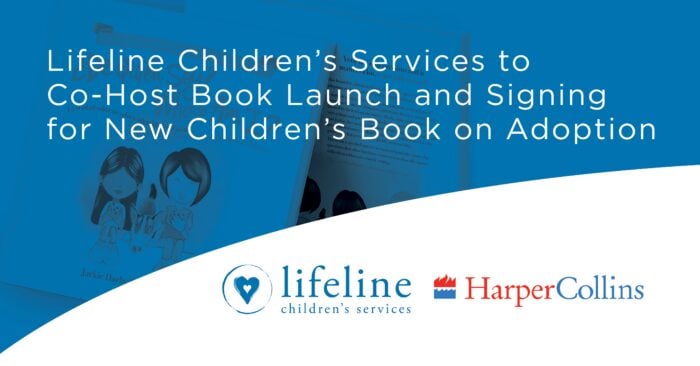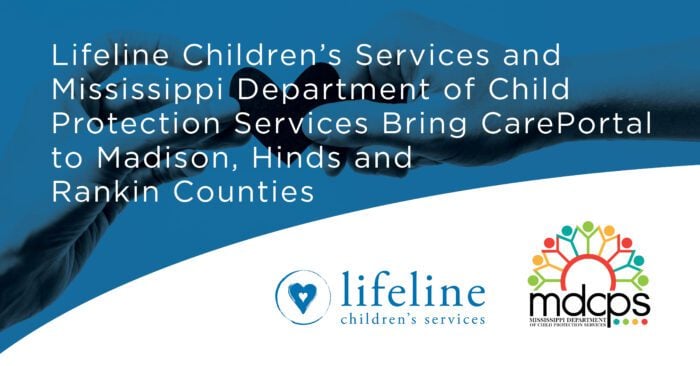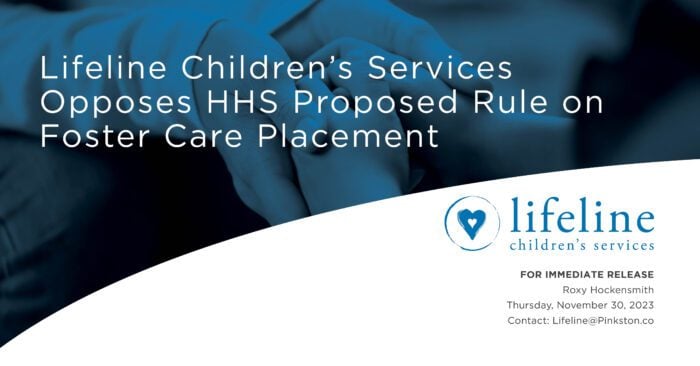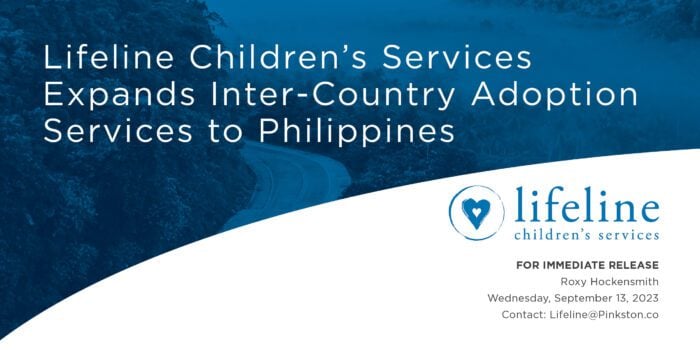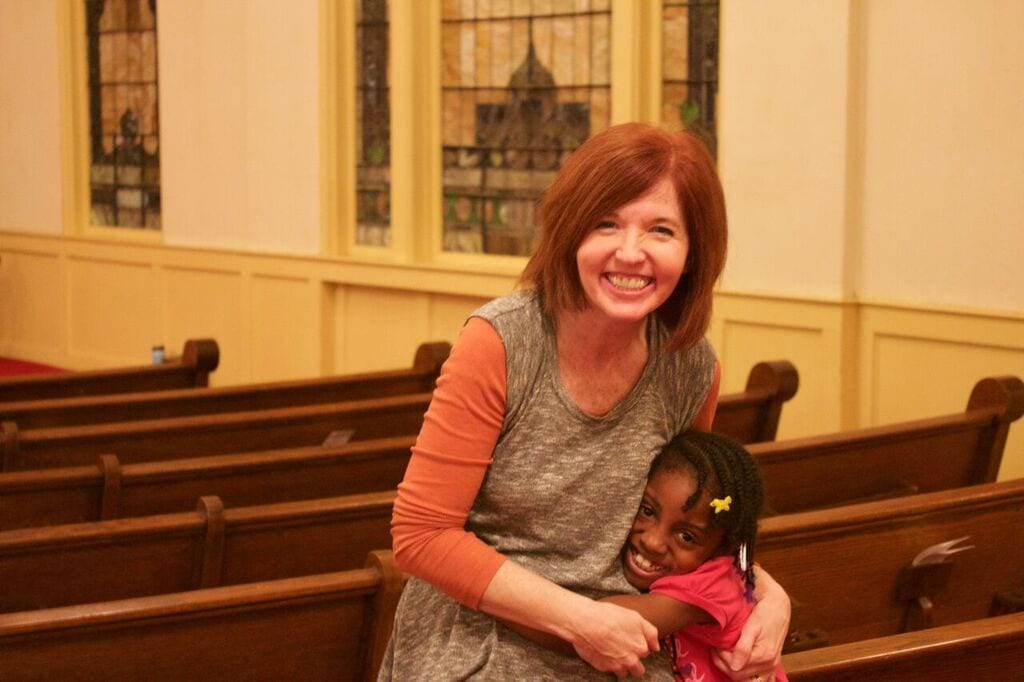Lifeline staff understands that the primary goal in most foster care cases is the reunification of children with their families of birth. We are believers in this goal, as we know from Scripture that God ordained family; however, outside of multiple short-term interventions, there are few, or no, real Christ-centered services being offered to birth parents—services that extend hope for lasting success to them and their children.
Following a foster care informational meeting facilitated by Lifeline, a young man approached the speaker and asked, “Why isn’t Lifeline doing something about the need for Christ-centered [services] to birth families?” This question was excellent and one that proved to be an affirmation of something the Lord had already placed on the hearts of our staff. After discussing the possibility with Lifeline’s executive director, he was whole-heartedly aligned with the idea of offering such a ministry to birth families; he insisted, however, “It has to be done by the church.” This conversation is where the vision for Families Count began.
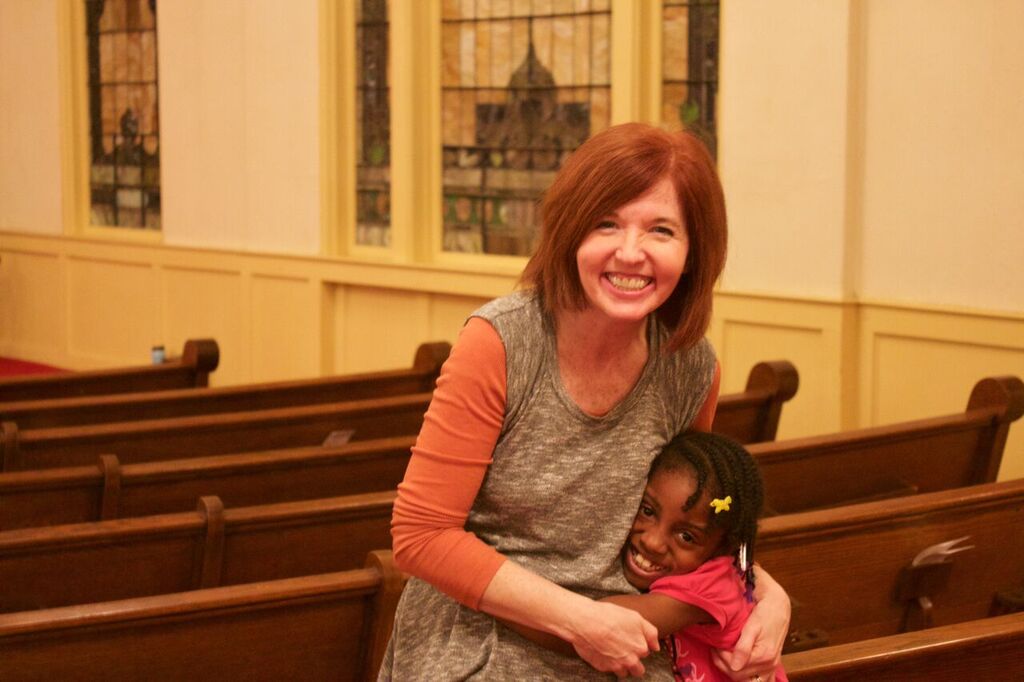

An overarching goal of Families Count is to point struggling mothers and fathers to the church as a viable means of support. The sense of belonging and community experienced within the church can help families find purpose and remain intact, but most importantly, parents and children can discover the source of all hope—Jesus Christ! We recognize that the church is uniquely equipped by the Holy Spirit for ministry in a way that no other entity is. It has the means to recruit volunteers, engage in acts of service, teach, and wrap around families in ways that others cannot. It is our desire that birth families experience the hospitality of the church and find a place of connection there that will spur them on to success. Also, a church community can build trust and rapport in a way not possible with agencies as mistrust in a system can develop on the part of many parents seeking reunification with their children.
Discipleship of these families is accomplished through Families Count with a six-week, biblically based curriculum. Corresponding mentorship is also optional for class members. Although optional, those parents who do elect to be matched with mentors experience greater benefits from the overall process. Mentors make an initial commitment of six weeks—the duration of the class—but may choose to remain in contact with their mentees following graduation. The primary roles of mentors are to provide emotional support through weekly contact, to provide accountability through reiteration of concepts learned in class, and to provide prayer support to those completing the class. Parents who have been joined in the process by mentors have stated that the greatest benefit [to them] of having a mentor has been having an unbiased person to listen to them.
The classes are based on God’s word, the Bible, and what it says about how we are to view our families and children. Because many of these parents have been separated from their children, the focus of the teaching is on re-establishing familial relationships. Childhood development and nurture at every stage are emphasized, and parents are challenged to view their families as created in God’s image with inherent value. The following outline of the classes provide a brief synopsis of the curriculum:
- Count One: Families Are Meant to Be Successful – This session emphasizes the purpose and benefits of family and the valuable contributions that every family member makes. The circumstances and/or choices we make that draw us away from loved ones are identified, along with ways to re-focus on the unique strengths and abilities every parent possesses.
- Count Two: Families of Origin and How They Affect Our Families Today – This session highlights families of origin and how both positive and negative learned behaviors are passed down from one generation to the next. Participants will be able to identify both positive and negative cycles within their families and how they affect their families today.
- Count Three: Families Function as Teams – This session uses a “teams” analogy to help participants gain a better understanding of parental roles versus children’s roles and the unique contributions that fathers, mothers, and children make within their families. Childhood development is explored and explained, helping parents recognize the importance of a child being a child.
- Count Four: Families Thrive with Discipline – This session distinguishes between punishment—punitive methods of behavior change, and discipline—teaching positive behaviors. Participants will learn alternatives to physical punishments that they can use within their families and how their responses to misbehaviors can lay a foundation of trust between them and their children.
- Count Five: Families Were Created with a Purpose and for Permanency – This session focuses on families serving a purpose within their communities and neighborhoods. Participants will have an enhanced understanding of how families are not accidental but put together for good things. Permanence and its importance to all family members, especially children, is explored. Personal responsibilities, such as managing family finances and performing in a job, are closely examined, and practical tools for balancing a budget and interviewing for a job are presented.
- Count Six: Broken Families Can Be Restored – This session discusses the brokenness of families in care and how restoration can be achieved in part by recognizing the gifts that families are.
Lifeline serves as an ongoing resource for churches interested in this ministry. The curriculum, written by Lifeline staff and foster parents, is provided to church partners, as well as training materials for prospective mentors and co-leaders. It is important that parents view the church as the main facilitators of this ministry, so Lifeline serves from a distance and is available to help church partners get started. For churches with the infrastructure in place, casework pieces (i.e., referrals, transportation and mentor recruitment and coordination) can be done effectively by them and can promote positive partnerships between the church and child welfare agencies. For churches that only provide physical facilities for the classes, Lifeline has accepted referrals directly from child welfare agencies and has coordinated the casework pieces for those classes. If you or your church is interested in learning more about this process, contact Traci Newell at Lifeline at 205-967-0811.
Written by: Traci Newell, Lifeline’s Education Coordinator.
